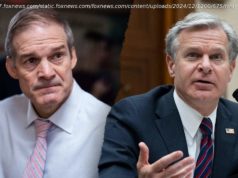For generations, American leaders have confronted challenging quandaries on the international stage. Trump’s Saudi quandary seems dumber, and possibly corrupt.
It appears to have been a brazen murder, which has resulted in a backlash against Riyadh. What’s been far less clear is what Donald Trump intends to do about it. Earlier this week, the American president said he hoped the situation would “sort itself out.” Yesterday, in a Q&A with reporters, Trump added that his administration is “looking at it very strongly.”
The Republican went on to say, however, that Khashoggi is not an American citizen and his apparent murder happened abroad – which seemed to signal Trump’s lack of interest in what transpired. It was soon followed by this exchange:
There are a few important angles to this, from corruption to confusion.
At face value, Trump’s message signaled a degree of indifference toward the apparent murder of Jamal Khashoggi. To hear the president tell it, he’s not pleased about the slaying of an American resident, but he’s not eager to take significant action, either.
The obvious question, of course, is why Trump has adopted such a posture. Might it have something to do with his longstanding business ties to the Saudis? How about Jared Kushner’s relationship with Saudi Arabia’s Crown Prince Mohammed Bin Salman? How about the money Saudi officials spent at one of Trump’s hotels, which the American president still owns and profits from?
Traditionally, we wouldn’t even have to wonder about whether a president’s foreign policy positions were influenced by corruption, but with Donald Trump in office, the questions are unavoidable.
Meanwhile, Trump’s remarks yesterday also reflected an element of amorality. Murdering Khashoggi isn’t great, the argument goes, but it’s hardly reason to stop providing Saudi Arabia with weapons it can use in Yemen.
By this reasoning, tolerating Khashoggi’s apparent slaying is the price Trump is willing to pay to do business, which is a rather twisted moral posture.
But as serious as these concerns are, there was another nagging detail that deserves attention. The Republican president mentioned a $110 billion arms deal with Saudi Arabia five times yesterday. As Trump sees it, the United States needs that money so badly, Americans have to be willing to put up with horrible crimes committed by our customer.
What he doesn’t seem to realize, however, is that the $110 billion arms deal isn’t exactly real.
A Washington Post report explained yesterday that the figure “is fanciful and unlikely to come to fruition – and in any case many of the purported deals are long in the future…. This is an example of a politician believing his own propaganda.” The piece added that the $110 billion figure “is not real.”
All of which leaves Trump is an exceedingly awkward position. The Republican isn’t overly concerned with Saudi Arabia killing a journalist – who lives in the United States and works for an American newspaper – because he wants to protect an arms deal that “is not real.”
For generations, American leaders have confronted challenging quandaries on the international stage: do they prioritize practical considerations or principled ones? Do they forge partnerships with bad people for good reasons?
Trump’s quandary seems … what’s the word I’m looking for … dumber. He convinced himself that he brokered a $110 billion deal with a country he has personal financial dealings with. The president then decided the agreement must be protected above moral considerations, despite the fact that the deal doesn’t really exist.






